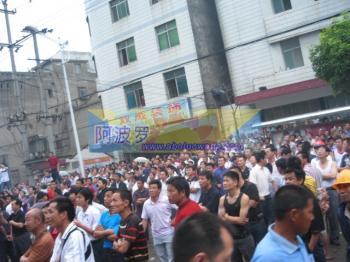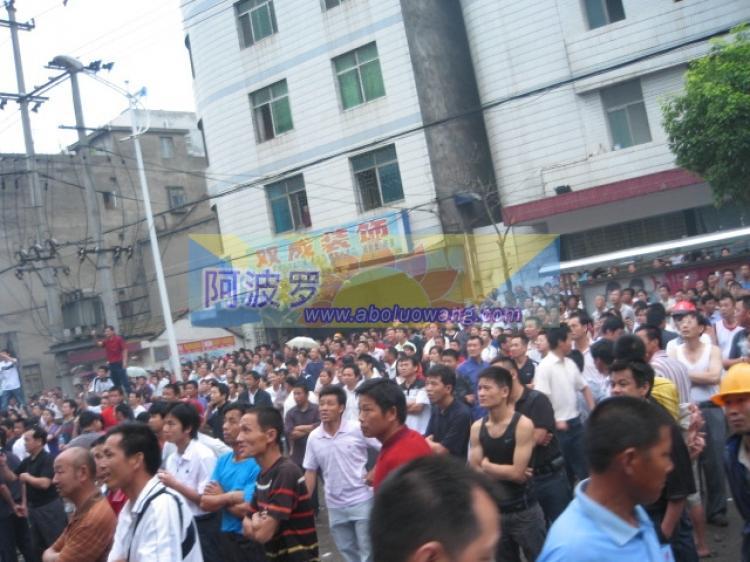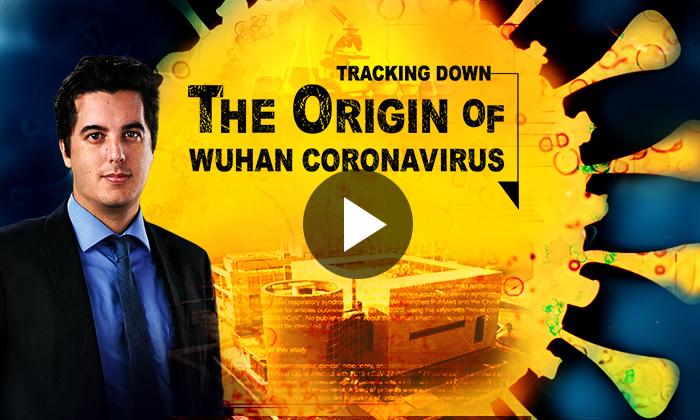Within the context of the Chinese communist regime, the incident that triggered the protests was minor. According to the official account in the state-run media, on June 17, a 24-year-old cook named Tu Yuangao committed suicide by jumping from the third floor of the Yonglong Hotel of Shishou.
When the body fell, onlookers rushed to the scene, and the death was immediately under suspicion: there was no blood at the spot where Tu had fallen. According to the people of Shishou, closer examination of the body showed that Tu was cruelly tortured before he fell: there were bloodstains around his neck and ankles, a nail had been driven into his head, and his private parts were damaged.
Tu’s body was moved into the lobby of the hotel, and a standoff developed. Tu’s family members demanded an autopsy. But the local police wanted to seize Tu’s body and have it cremated. When the police arrived to take the body, people believed that the regime was trying to cover up a murder.
Cover-ups of incidents at this hotel had happened there before. A high school student posted a message on the Internet on June 22 saying that the Yonglong Hotel is a place for sexual transactions and drug dealing.
According to the student’s message, “In 1999 a young woman died at the hotel but the case was closed without any explanation. Two years ago a 16-year-old died there, and her death was casually judged by the police as suicide. The case was closed with RMB 35,000 [approximately US$5,100] given by the hotel manager, who is the younger brother of the city Mayor Zhang Shancai.”
The people of Shishou believe that Tu was dead because he knew the details of secret criminal activity. The owner of the hotel where he was working is said to have been dealing drugs, with the help of the local police chief and the wife of the head judge of the local court.
Clash in the Streets
A violent clash ensued between the police and the sympathizers with Tu’s family. Some of the people were beaten up by the police before they were arrested. But more and more people came to join the fight against the police. At its peak, the crowd is said to have numbered 70,000.
Such spontaneous, mass protests have become increasingly common in China. An isolated event can trigger an explosive incident that involves tens of thousands people.
Most people have some grievance against the communist regime. While some big cities in China give an impression of great prosperity, the benefits are concentrated among a small number of people who are close to political power. Many others have suffered from widespread injustice and corruption, as well as a damaged environment. The people find these grievances usually cannot be addressed through the regime or its legal system.
The accumulation of grievances without possibility of redress has made the people chronically angry. But, the consensus view is that the people of China have been unhappy at their treatment at the hands of the Communist Party for a long time.
Defending Rights
Today, the people of Shishou City are not only angry, they have something new: a sense that they have rights. And this idea of rights that need to be defended helps convert isolated conflicts into mass challenges to the regime.
The people who gathered in Shishou City were not just defending the family’s desire to know who or what had killed their son, they were defending the right of the family to know that. This right is something that people throughout China with no connection to Shishou City might support.
This is, in part, why the regime, which a few months ago claimed to have embraced a more open policy towards reporting on events in China, acted so quickly in Shishou City to try to control the news about what was happening there. Within hours after the protests began on June 20, the Internet in Shishou City was shut down. The family called media in Beijing, but when reporters reached the city, they were not allowed in. Postings to chat rooms and blogs criticizing the handling of Tu’s death were removed, with only the official version allowed to be kept.
This sense of having rights that should be defended has penetrated to the grassroots. Judging by the photos of the protesters in Shishou City, these are not intellectuals or idealistic students; these are working-class people of all kinds—housewives in their slippers, middle-aged men in t-shirts, and aged grandfathers.
These people believed they were supporting the claims of Tu’s family against the designs of the police chief, the head judge, and the town mayor. The people of Shishou City believed that Tu’s family could not get fair treatment from what they consider to be a corrupt establishment, and so they took to the streets in support.
Tactical Adjustments
The regime responded with specially trained riot police whose numbers are estimated to have been at least 8,000, and eventually the protests were subdued. However, in the confrontation with the riot police, the people appear to have won a victory.
The regime, which had initially sought by force to cremate Tu’s body, agreed to conduct an autopsy with the family present. According to a report in the Xiaoxiang Morning Post on June 23, this autopsy has taken place, with results expected in 20 days, and the family has been asked to cremate the body as soon as possible. The family has refused to do so until the autopsy report has been released.
Meanwhile, according to the same newspaper report, the family has displayed the body in a transparent casket in a mortuary. The reporter, along with all who came to see the body in state, could see wounds on the chest, neck, ankles, and private parts.
What appear to be concessions by the Chinese regime officials, however, often turn out to be mere tactical adjustments. For example, in the recent case of Deng Yujiao, who was tried on June 16 for killing a Communist Party official said to be raping her, the court claimed to have fully restored her freedom. That verdict in the case was thought to be in response to the widespread public support for Deng. Within 48 hours of her release, though, she was reported by her mother to have been taken away for psychiatric “treatment,” and has not been heard from since.
In the case of Tu’s family, they are now reported to have been invited in for “conversation” with a local official. With 70,000 people no longer in the streets, the pressure on the family will grow intense. A deal that will force them to back down from their confrontation with the regime would not be surprising.
But even if the regime eventually forces the family to back down, this incident in Shishou City has cost it. The knowledge of what had been done to Tu, apparently to protect the interests of the top local officials, reached the Chinese people who read the Internet before it was shut down and cleansed. That knowledge will further fuel the Chinese people’s anger and indignation.







